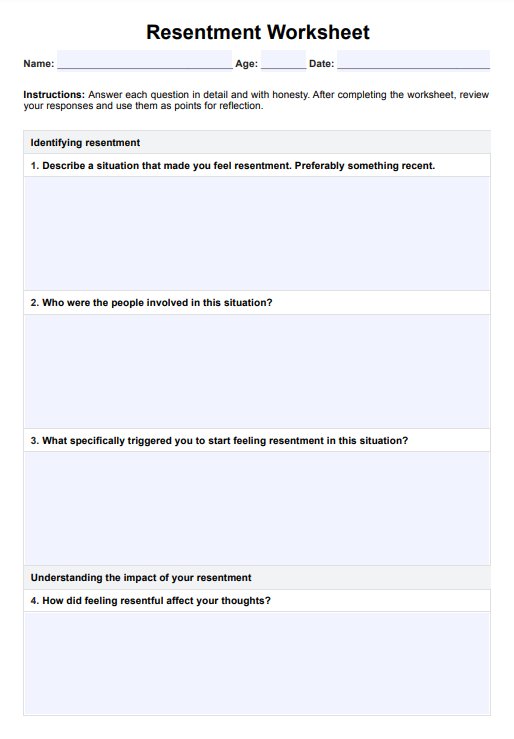Resenting someone often feels like harboring a deep-seated anger or bitterness towards them. It can be emotionally draining and manifest as persistent negative thoughts about the person or situation.

Resentment Worksheet
Use this Resentment Worksheet to help clients become more cognizant of their resentment and help them work through and let go of it.
Use Template
Resentment Worksheet Template
Commonly asked questions
Being the recipient of resentment can feel isolating and hurtful. It often leads to strained relationships and misunderstandings; one might feel unfairly judged or misunderstood.
The purpose of resentment, while not beneficial, is often a psychological response to perceived unfairness or injustice. It is an emotional indicator that something in our relationships or interactions needs attention or resolution.
EHR and practice management software
Get started for free
*No credit card required
Free
$0/usd
Unlimited clients
Telehealth
1GB of storage
Client portal text
Automated billing and online payments











